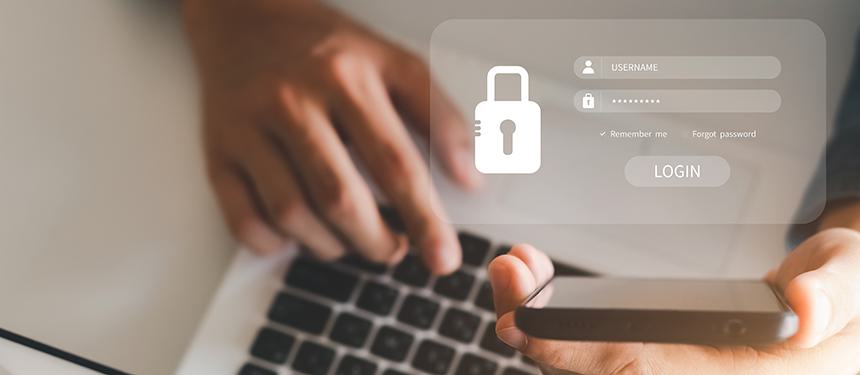The importance of good password security

The importance of having a strong password has never been more paramount, with hackers able to break a weak password in a matter of moments - and if that password is used for a variety of accounts, then a criminal can access personal data, bank details, social media accounts and myriad other systems which can lead to identity theft, financial loss or fraud.
Using the same password for numerous accounts can be problematic if an account is compromised or a data leak results in account details being leaked. Access to one can lead to access to all. Increasingly, personal data is being stored almost entirely online, and this is providing opportunities for disruptors, as personal information can be sold at a significant profit and used to identify potential other avenues of criminality.
Bad passwords are bad for business
For businesses, the consequences of an employee suffering a compromised password on a work device or network are wide-ranging. Once a password has been breached, a hacker can access entire networks, jeopardising organisational information security. The potential for a devastating cyber attack, such as a malware incursion, is significantly increased once a network has been breached, and such incidents can lead to severe economic and reputational damage. It’s never been more important to educate employees on the importance of password security and wider cyber security risks.
Personal information can be extricated through the number of applications, devices and websites which now store our personal data. Passwords can be stolen in bulk from applications and databases with poor security measures or network security which can be easily bypassed. It is estimated that the average person now has over 100 digital accounts, when all social media, online shopping and phone applications are taken into consideration. Each requires a password, but just one data breach is enough to allow a criminal a deep dive into an individual’s personal data.
Everyone assumes it won’t happen to them, until it does. But there are numerous measures your employees can take to minimise the risks associated with a compromised password.
Tips for password security
Don’t use the same password for several accounts
It might seem inconvenient and time-consuming to not use to the same password or variations of a password for every account, but it will greatly secure your password strength. Numerous password manager applications are available which automatically create randomly generated passwords and stores all passwords for other accounts.
Use strong passwords
Although it can be frustrating, passwords which include symbols and numbers are far stronger than those which are just words, usually personal information such as a pet, a family name, or memorable dates. Any words found in the dictionary are easier to guess compared to a random combination of letters and numbers.
Regularly change your passwords
Some applications will require you to change your passwords at intervals, but it is important to change your password regularly to ensure your digital footprint isn’t becoming static and easier to steal or replicate.
Always logout of devices
This is especially important when using shared devices, or devices which might automatically cache your details.
Where possible, enable two-factor or multi-factor authentication
Authentication applications give you another layer of protection and ensure that in the event someone attempts to change your password or access your personal data, you are notified and can react accordingly.
Keep your passwords private
Do not write passwords down or store them digitally on a central document. Do not share your passwords unless absolutely necessary.


